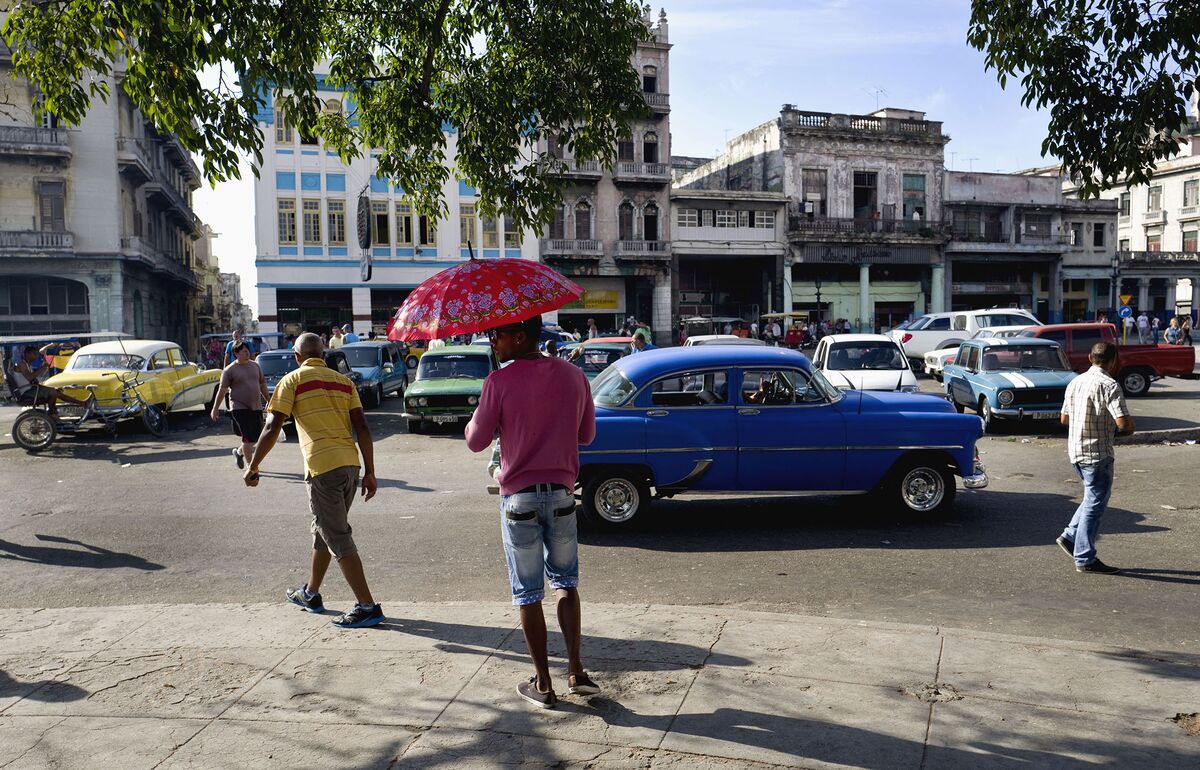
President Donald Trump plans to scale back his predecessor’s effort to open Cuba to U. tourism and trade, and his advisers are preparing options including new limits on American travel to the island and restricting partnerships between U. companies and entities with ties to the Cuban military, according to two people familiar with the discussions.
Final options haven’t yet been presented to Trump, though a decision is expected before a visit by the U. president to Miami on Friday. The people familiar with the plans, both outside the White House, spoke on condition of anonymity because discussions are ongoing.
White House Press Secretary Sean Spicer on Monday declined to describe Trump’s plans for President Barack Obama’s Cuba liberalization policy. “When we have an announcement on the president’s schedule we’ll let you know,” he told reporters.
Trump has criticized Obama’s deal-making with Cuba as one-sided, and has said it allowed the Castro regime to continue human rights abuses. Obama re-opened the U. embassy on the island, relaxed travel restrictions on American citizens, and allowed U. airlines to establish direct flights and U. cruise lines to make ports of call in Cuba.
“If Cuba is unwilling to make a better deal for the Cuban people, the Cuban/American people and the U. as a whole, I will terminate deal,” Trump said in a tweet less than a month after his election.
Havana Hotel
New sanctions aimed at cutting off flows of money that benefit the Cuban military could affect U. hotel partnerships in Cuba, including the Four Points by Sheraton in Havana. The Cuban military had a stake in the hotel’s Cuban partner.
Other ideas under discussion, the people familiar with the matter said, include guidelines that would require Americans to formally explain how their travel to Cuba benefits the U. and the Cuban people, as well as increased scrutiny of travelers and the frequency of their visits.
Travel restrictions could impact U. airlines with direct flights to Cuba as well as the cruise industry. One advocate of Obama’s policies said a change would have less impact on a vacationer than on people seeking to do business or on Cuban-Americans who want to visit family on the island on a regular basis.
Senator Jeff Flake, an Arizona Republican who backed Obama’s Cuba policy, said lawmakers on both sides of the aisle are concerned about what Trump will do.
Any additional restrictions on travel "will go over like a lead balloon, and it should," Flake said in an interview on Monday. Under the travel limits in place preceding Obama, he said, Cuban-Americans with aging parents in Cuba might have been forced to decide which parent’s funeral to attend.
He also said he does not want to see curbs on Cuban entrepreneurship or the U. more focused on Cuba sanctions than on sanctions against North Korea or Iran.
Sanction Effects
Sanctions targeting the Cuban military could have widespread effects, given its large role in the country -- perhaps touching even on remittances and agriculture. The impact would depend on how sanctions are structured.
James Williams, president of Engage Cuba, a Washington-based group lobbying to end the 55-year old U. trade embargo against Cuba, said that changes to Obama’s policy could have unintended consequences for U. businesses and jobs. “The idea that this is just some kind of modest step back is only true if it’s done extremely carefully in the end,” he said.
A report prepared by his group found that major airlines including American Airlines Group Inc., Delta Air Lines Inc., JetBlue Airways Corp., Southwest Airlines Co., United Continental Holdings Inc., and Carnival Corp., Royal Caribbean Cruises Ltd., and Norwegian Cruise Line Holdings Ltd. have all taken advantage of Obama’s relaxed travel restrictions.
The island has not been as promising a business opportunity as U. airlines once expected, however. Two smaller carriers, Frontier Airlines Holdings Inc. and Silver Airways Corp., have discontinued flights to Cuba entirely, and American, the largest carrier with service to Cuba, scaled back flights 25 percent earlier this year.
Flake said he and two Democratic senators, Patrick Leahy of Vermont and Chris Van Hollen of Maryland, met last week with Trump’s national security adviser H. McMaster to share their concerns but that McMaster did not signal the administration’s plans.
The president’s advisers have sought input from across his Cabinet but also have been working behind the scenes with critics of the Castro administration, including Senator Marco Rubio, a Florida Republican.
“I am confident the president will keep his commitment on Cuba policy by making changes that are targeted and strategic and which advance the Cuban people’s aspirations for economic and political liberty,” Rubio said in a statement.


0 comments:
Post a Comment